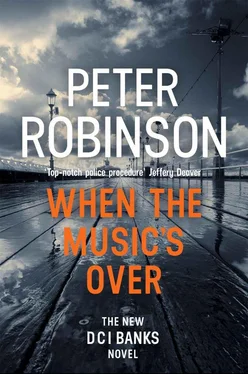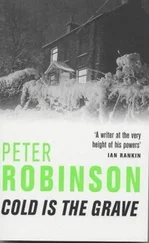‘How did you feel about it?’
‘How do you think I felt?’
‘I can’t imagine. Disappointed?’
‘Not disappointed. You’d have to have expected something to feel that, and I suppose, deep down, I didn’t. Expect anything, I mean. And the whole thing was frightening for a young girl, talking to the police and all that. I couldn’t imagine being in a courtroom in front of all those serious old people in their wigs and gowns answering questions about what happened to me. I was shy. I had an overactive imagination, even then. But the main feeling was as if I didn’t count. As if what had happened to me didn’t matter. I was a nobody. You have to remember, I was just a kid from a working-class background, and we never expected much from the ruling classes. I mean, I couldn’t have articulated it that way back then, but that’s what it amounted to. Money and privilege ruled. Still do, for that matter, no matter what the clever southerners try to tell you. I’m sorry, there’s me on one of my hobby horses again.’
‘It’s all right,’ said Banks. ‘Did anyone ever pursue the matter beyond that point?’
‘Not that I know of. There seemed no point. We’d had our shot, and we missed. What were we to do? Start a campaign? My parents... you have to understand, something like that, it wasn’t something they could talk about. They’d both had strict upbringings. Sex wasn’t something we talked about in our house. My father in particular. Which was why we never told him. If he ever thought anything was wrong, he probably just wrote it off as some sort of “female” problem. Time of the month. If he noticed at all. I suppose he would have found out if anything had come of it, but it didn’t. And he died two months ago. Maybe that’s another reason I feel I can talk now. Need to talk now. He can never know.’
‘What about your mother?’
‘My mother was ashamed. She tried not to show it, but I could tell. I’m not saying she blamed me, but when she looked at me, I could tell she wished I’d never brought such unpleasantness into our house. She wanted rid of it, so we swept it under the carpet.’ Linda seemed uncertain whether to go on, then she said, ‘I’m not even sure she believed me. I think she realised there was something wrong with me, but the visit to the police was more like a visit to the doctor’s with a troublesome pain or an unexplained lump. When the investigation went nowhere, it was rather like getting a clean bill of health. You know, it’s not cancer, after all, it’s not polio. More relief than anger. Mother died a few years ago, and by the end I think she had even convinced herself to forget it had ever happened. Neither of us mentioned it to anyone else, or even to each other again. We simply got on with our lives.’
‘No crime in that.’
‘Keep calm and carry on. I know.’
‘I mean...’
‘I know what you mean.’ She sat forward suddenly, linking her hands on her lap. ‘It’s what lots of people did, their generation especially. My father was part of the D-Day landings, but he never spoke about it. I once saw a big puckered scar on his side when we were on a beach somewhere, and I asked him about it. He just brushed it off as nothing, but I recognised it from pictures I’d seen in books. It was a bayonet wound. He’d got close enough to the enemy for hand-to-hand combat in the war, for crying out loud, but he never talked about it. He probably killed the man who wounded him, and that was why he was still alive. I just felt guilt, that’s all. I tried. We tried the best we could, the best my mother and I could. We got nowhere. Now I’m different. I don’t mind talking about it. I don’t even really care if everyone finds out. Maybe I secretly want them to. I want to know why nobody did anything. And I want them to do something now, if they can. Is that so strange?’
‘No,’ said Banks. ‘Not at all. That’s what we’re here for.’ In a way, Banks knew, she was probably right about her mother. In many cases, the parents didn’t believe their children’s stories, which made it far worse for the children, who felt alone, humiliated and ashamed enough to start with. No wonder so many ended up blaming themselves.
‘What do you need to know?’ Linda asked. ‘Ms MacDonald didn’t ask me very much on the phone.’
‘She just wanted to get a general outline of the complaint, the basics. I’m afraid I need a lot more.’ Banks glanced at Winsome, who had her notebook and mobile out on the table. ‘Do you mind if we record this?’
‘Not at all,’ said Linda. ‘As I said, I want to talk about it.’
Winsome set the mobile’s voice recorder on.
‘Where did the assault take place?’ said Banks.
‘In a suite at the Majestic Hotel in Blackpool, a big old place behind the Pleasure Beach. It’s where he — Danny Caxton — and his entourage were staying during the summer season. It’s not there any more.’
‘Why were you there?’
She cocked her head to one side. ‘Looking back, God only knows,’ she whispered. ‘Remember, I was only fourteen. Danny Caxton was famous. He was handsome like a film star. And he was a nice man. Or so he seemed to his public. He had one of those affable, trustworthy personalities. On the outside. Maybe that was another reason nobody believed me. It was after a matinee, and I was at the stage door on the pier autograph hunting. I used to do that back then. My friend Melanie was supposed to be with me but she cried off at the last minute and went to one of the amusement arcades instead. She wasn’t really interested in autographs.’
‘Did you tell your parents where you were going?’
‘I probably said I was going to try and get some autographs, yes. They knew I collected them. They were used to me going off by myself. I was a solitary child. A bit of a loner. Don’t get me wrong. I wasn’t antisocial, and I was really glad Melanie was with us that week. But I still needed to do some things by myself. I always have.’
‘So you were on your own?’
‘Well, there were a few others after autographs, but no one was actually with me, no. You might remember he’d recently started hosting that talent show, Do Your Own Thing! at the time, and I suppose I thought I had talent. I used to watch it regularly. I had dreams of being an actress or a singer then, the next Julie Christie or Dusty Springfield or something. People told me I had a nice voice, and I’d had some good parts in school plays. I wrote my own songs. I’d even played Juliet at school earlier that year. Most of the celebrities, they just hurried by and scribbled in the book without even looking at you, if they bothered at all. But Danny Caxton was different. He noticed people. He really seemed to see me. He stopped to talk to me. Me .’
‘What did he say?’
‘He asked me my name, what I did.’
‘You told him you were at school?’
‘Yes.’
‘What else?’
‘What I was interested in. That’s when I told him about... you know, singing and wanting to be onstage. As I said, I was usually a shy teenager, but there was something in his manner that could sort of bring people out of themselves. It felt nice to be able to talk about my dreams to someone. Most of the others had gone by then. I was last in line. He had my book in his hand and his pen ready, but I was gushing about my favourite pop singers. He knew them all, of course — I mean really knew them — and that was when he said maybe he could help me, and somehow the autograph got lost in the excitement. He never did sign it.’
‘What did he mean that he could help you?’
‘He said maybe he could arrange for me to come to a filming of his programme in the TV studio, to be a part of the audience, that maybe if I was good enough I could even be on it. It was a friendly invitation, you know, a bit mysterious, a bit promising, the hint that there’ll be something good at the end of it, that I might even get to meet Helen Shapiro or Kathy Kirby. They were both in Blackpool at the time, in different shows. Can you imagine? He said I was pretty and I carried myself well, I had elegant posture, and that was always important if you wanted to be successful in show business. He said they were always needing extras and whatever for the TV show, or for a Christmas panto, and maybe he could get me a start.’
Читать дальше












